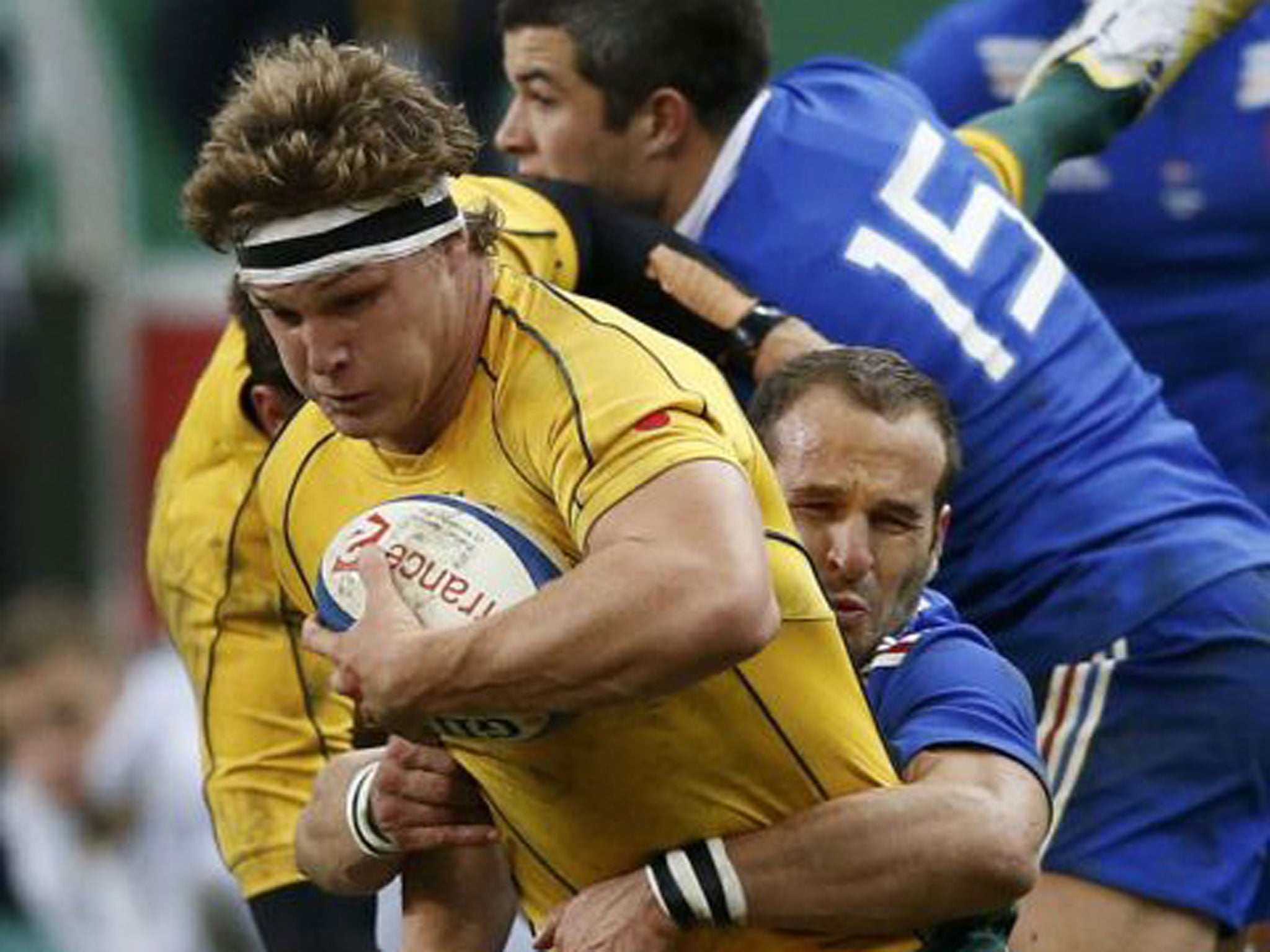Brian Smith: Deans is feeling heat as he tries to lift depleted Wallabies
Coach’s view: The line-out will be a serious contest... Expect plenty of fun and games

It may sound a little strange in light of events in Paris last weekend, but I wouldn't mind being in Australia's position at Twickenham this afternoon. It's nothing to do with my status as a born-and-bred Queenslander: I've been living and working in England too long for my background to sway me emotionally when it comes to analysing a game of rugby – even one between these two countries. I just happen to feel that England will be feeling the pressure in a different, more acute way to the Wallabies.
The tourists lost heavily against France seven days ago; some of their most capable players are either struggling with injury here or are under medical supervision back home; they have lost Rob Simmons to suspension, which leaves them light in the second-row department; and their coach, Robbie Deans, is under a lot of heat from those who see the World Cup-winning prop Ewen Mackenzie as a ready-made successor with all the necessary qualities to take on the role immediately. (The fact that Mackenzie is an Australian and Deans a New Zealander might have something to do with it, but it is not the whole story. Where I come from, inter-state prejudice can be just as intense as the international variety: if the coach of the Wallaby team comes from New South Wales, the people in Queensland are immediately on his case, and vice versa).
When you put all this in the mix it's difficult to see why anyone should feel optimistic about Australia's immediate prospects, but this kind of negativity can cut both ways. So many people are dismissing the Wallabies as a rabble; they have nothing to lose in throwing everything at an England team carrying a heavy weight of expectation.
Somewhere along the line on this tour, Deans needs a result – if it doesn't come today, it will have to be against Wales next month. He is in an exposed position because John O'Neill, his big supporter on the Australian Rugby Union, has quit as chief executive, and I hear a lot of talk to the effect that he will not be in charge by the time the Lions arrive in the country next summer. I'm not convinced about that, but there comes a point when the urge for change at the top becomes irresistible. It's part of the human condition.
England can expect to be tested at source far more than they were by the Fijians. They are often the dominant force in the scrum in matches against Australia, but today's set-piece contest has its share of intrigue, not least because Graham Rowntree, alongside whom I worked in the England coaching team, finds himself up against another former Test prop in Andrew Blades. They know each other from their playing days and will be keen to win the tactical battle of wits.
As I suggested last week, the line-out will be a serious contest – one that will crank up the pressure on Tom Youngs. The Wallabies are always strong when it comes to line-out defence: expect plenty of fun and games in the early stages as they box clever and break things up with a variety of disruptive tactics. If Youngs starts to lose his bearings, England will be grateful for the presence of the tough-minded, technically accurate David Paice on the bench.
And then we have the tackle area, where the Wallaby open-side flanker David Pocock has been king in some very big games in recent seasons. Pocock's withdrawal from this game is a big blow to the tourists: much as I admire the way Michael Hooper has played over the last few weeks.
This is an area where, to my mind at least, England are still a little vulnerable – something I suspect will become increasingly evident in the coming weeks when South Africa and New Zealand, both of whom are ferociously competitive at the breakdown, play at Twickenham. No one can doubt the quality of Chris Robshaw's leadership: he is a committed player who has fought many a good opponent to a standstill over the last nine months or so. But I wonder if there will come a time when the coaches decide they cannot continue to ignore Steffon Armitage, who is performing the open-side flanker role so effectively for the French club Toulon and has exactly the kind of game to make a Pocock-like impact.
Having worked with Steffon in both the London Irish and England environments, I recognise his potential and understand the things he can bring to the national side. It may be that if he really wants to build a Test career for himself, he will have to return to English club rugby. Will it happen? Let's put it this way: we at London Irish are in close touch with him and we would welcome him back with open arms if he decided to return.
In the meantime, he's forging a reputation for himself as one of the best breakaways in Europe. If you don't believe me, ask Jonny Wilkinson, who plays alongside him down there on the Riviera. Jonny doesn't talk about his fellow players too often – not in public, at least – but he recently described Steffon as "world-class". Not a bad testimonial, you'll agree.
Brian Smith is rugby director at London Irish and the former England attack coach. His fee for this article has been donated to Great Ormond Street Hospital
Join our commenting forum
Join thought-provoking conversations, follow other Independent readers and see their replies
Comments
Bookmark popover
Removed from bookmarks